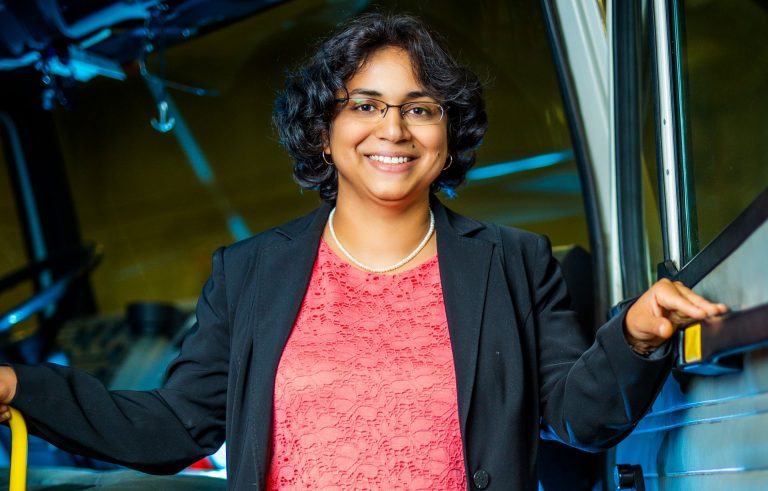A new study proposes smarter ways for cities to approach mass transit issues

When it comes to implementing mass transit rethinks, there is no one-size-fits-all solution.
Some cities are better suited for monorails or tramways; others might benefit from congestion charges. Still others would benefit most from new subway lines or bus routes, or more bike paths or car-sharing systems.
The point is, each city has its own individual needs. So how are those needs best prioritized by the transit decision-making authorities in each city?
For starters, they could ask Anjali Awasthi. The associate professor at the Concordia Institute for Information Systems Engineering (CIISE) recently published a paper in the journal Transportation Research Part A: Policy and Practice that lays out a system for ranking sustainable transportation alternatives.
Awasthi and her co-authors ranked three projects already underway in the city of Luxembourg: a downtown tramway, re-organizing the city’s bus lines and implementing an electric car-sharing service.
Re-thinking a city’s transit DNA is an enormously complex puzzle, one with multiple stakeholders and multiple objectives. In order to discover which option would be the best fit for Luxembourg, Awasthi and her team first had to receive input from a seven-member committee consisting of academics and practitioners from Luxembourg’s Ministry of Transport.
The committee evaluated each mass transit option’s performance against a list of almost three dozen different criteria that they ranked linguistically, from Very Low to Very High. These ranged from economic expenditures such as land and infrastructure costs to fossil fuel consumption to the effects of congestion reduction on human health and well-being.
Awasthi then calculated the results using a technique called Ideal Solution-Based Multicriteria Decision-Making.
The Ideal Solution-Based technique ranks options based on how close they come to maximizing their goal. For instance, if a goal is reducing overall greenhouse gas emissions, how do the various options rank in achieving that goal?
“Here, the best alternative is not random,” says Awasthi. “It is the best alternative because it scored highest on all the parameters that are being studied, so therefore any solution that we evaluate is being compared to the best possible one.”
The team then applied three different Ideal Solution-Based Multicriteria Decision-Making techniques to obtain relative rankings of each project.
“We wanted to check that the results obtained from one method were consistent with the results of other methods, or not,” she says. “And when we ranked all three projects using the three different methods, we found that the tramway was the best with regards to the criteria being considered.”
Not only was the tramway deemed the best choice, it also proved the best option when the parameters were weighted differently. So, if the committee was more focused on, say, revenues than social or environmental aspects, the tramway option still performed the best.
Awasthi warns that the study did have its limitations, not least of which was its tiny sample size.
“Of course, the higher number of participants we have ranking criteria, the more accurate the results will be,” she says. “If we had more team members, we could investigate whether the results would change or not.”
Awasthi also notes that Luxembourg municipal authorities chose the criteria. She says other cities may have other priorities, and so a similar study unique to that city would have to be adjusted accordingly.
However, she says that would be a straightforward process.
“It’s not at all complicated to transport this kind of measurement from Luxembourg to a city like Montreal,” she says. “We just need a new set of data and a new list of priorities and maybe more stakeholders participating.”
The research project was supported by MOEBIUS project from CEPS/INSTEAD Luxembourg.
Read the full study: Investigating ideal-solution based multicriteria decision making techniques for sustainability evaluation of urban mobility projects.
Contact
Public Affairs
514-848-2424, ext. 5068
patrick.lejtenyi@concordia.ca
@ConcordiaUnews


